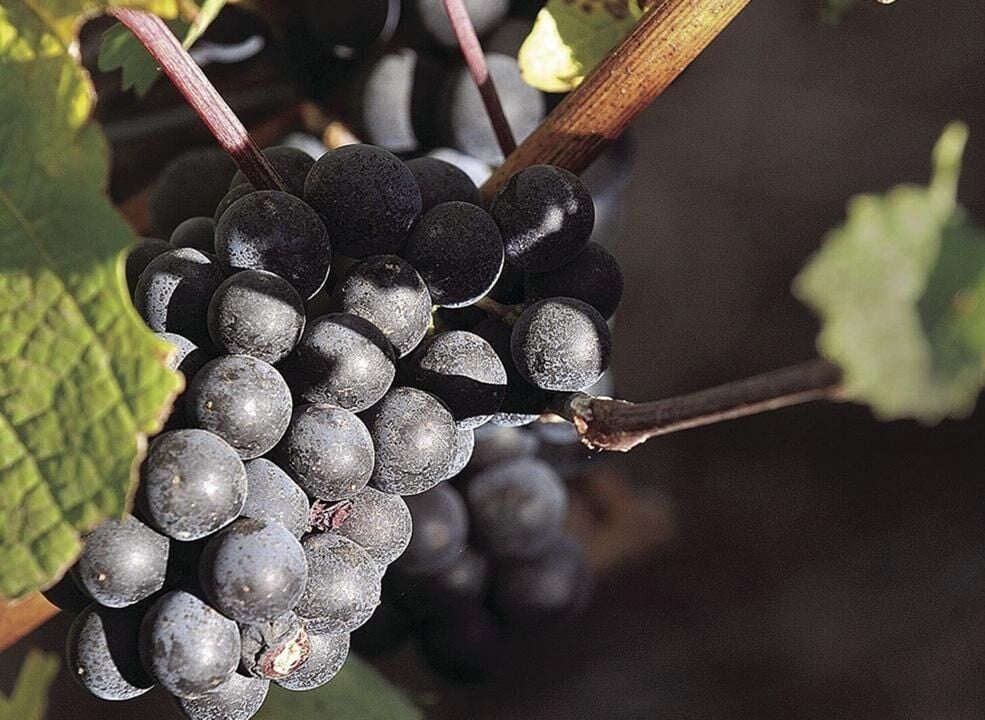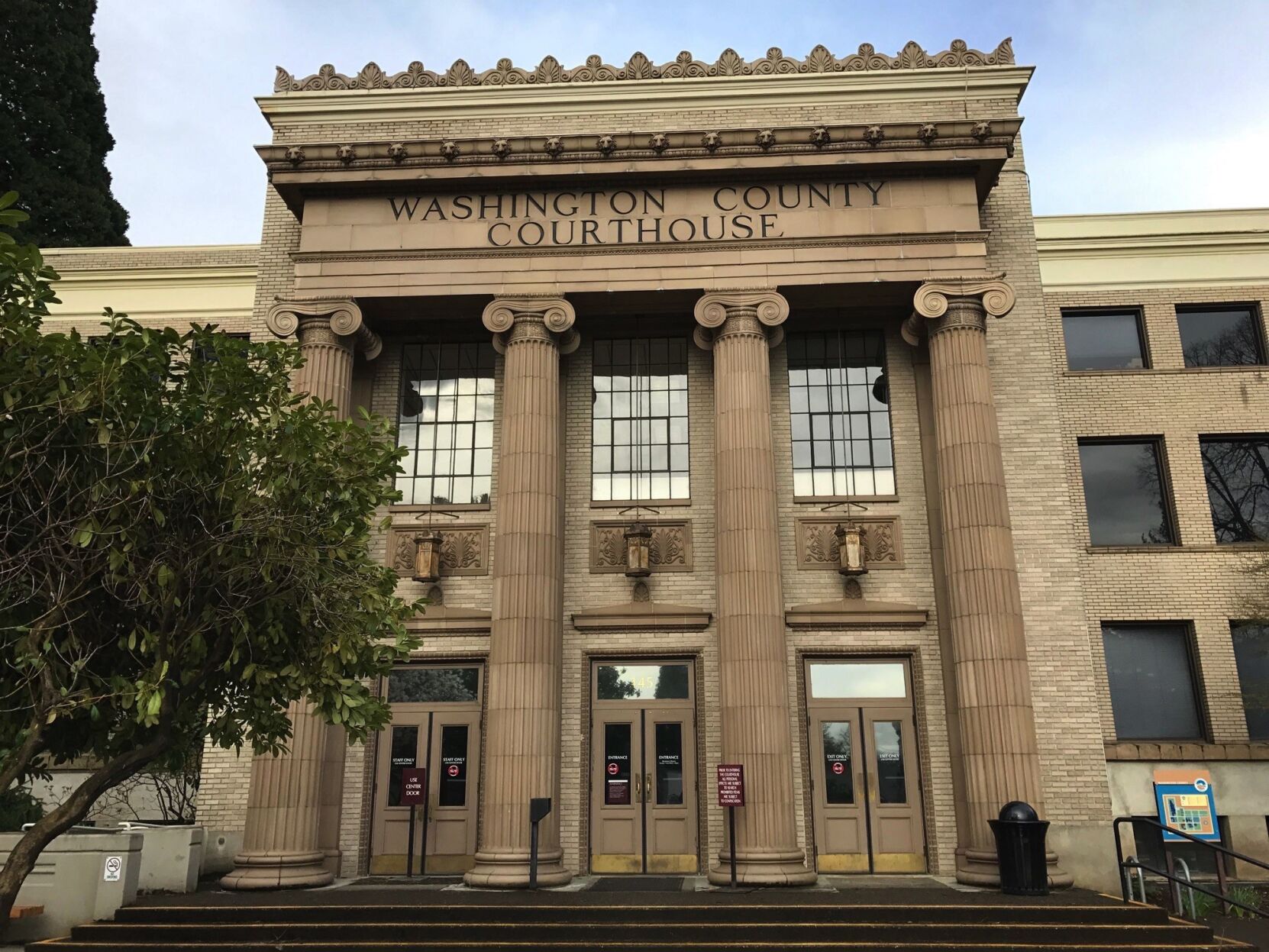Wineries’ attorney insists state report will not thwart holding PacifiCorp responsible for destroying 2020 vintage
Published 3:00 am Monday, April 7, 2025

- In general, the lawsuits allege that the Portland-based company, despite advance knowledge of weather patterns and high winds creating a perfect scenario for ignition, refused to cut power to transmission lines that then ignited fires in forests and among structures over thousands of acres in the state. (File Photo)
The Oregon Department of Forestry’s recent report that PacifiCorp’s power lines were not responsible for the Santiam Canyon Fire on Labor Day 2020 will not threaten at least two lawsuits filed against the utility by more than three dozen wineries in western Oregon, most located in the Willamette Valley.
That’s the assertion of the lead attorney representing the wineries, Dustin Dow of the Seattle-based law firm Baker Hostetler. Baker Hostetler is representing 91 wineries in four counties and is responsible for several lawsuits against the utility company.
Dow insists the lawsuits to hold PacifiCorp responsible for tainting wine grapes destined for a promising 2020 vintage will forge forward unthwarted.
The first of the two regional lawsuits, filed in May 2024 in Multnomah County Circuit Court, includes Dundee-area wineries Domaine Serene and Lange Estate Winery, which are seeking more than $11.74 million and $4.87 million, respectively, in damages.
The cadre of wineries are seeking over $102 million in damages in total in this lawsuit. A trial is currently set for May 2026.
The second suit, filed in October also in Multnomah County Circuit Court, includes Newberg wineries Flanerie Vineyard and Kings Grade Vineyards as well as Carlton winery Flaneur Wines. The six plaintiffs are seeking $4 million in damages.
All told, over 40 wineries have joined the lawsuits against PacifiCorp, taking it to task for its actions in 2020. A hearing on a motion to dismiss this case is set for April 11.
In general, the lawsuits allege that the Portland-based company, despite advance knowledge of weather patterns and high winds creating a perfect scenario for ignition, refused to cut power to transmission lines that then ignited fires in forests and among structures over thousands of acres in the state.
The fires took flame along the flanks of the Cascade Mountains from Mill City in the north to Eagle Point in the south, as well as near the towns of Lincoln City and Otis on the west.
Smoke emanating from the wildfires, the lawsuits argue, adversely affected wine grapes downwind from the blazes, effectively making them useless for producing wine.
The ODF report released in March concentrates solely on the Santiam Canyon Fire, Dow insists, while remaining mum on the other fires included in the wineries’ cases: the Archie Creek Fire, French Creek Fire, Susan Creek Fire, 242 Fire, South Obenchain Fire and Echo Mountain Fire.
PacifiCorp has already been found responsible for a number of other fires, Dow asserted.
“The ODF has determined that PacifiCorp caused the French Creek Fire,” he added. “The U.S. Bureau of Land Management determined that PacifiCorp caused the Susan Creek Fire. The U.S. Forest Service determined that PacifiCorp caused the Archie Creek Fire. ODF investigations are still pending on South Obenchain and Echo Mountain.”
The Santiam Canyon Fire incinerated more than 400,000 acres, substantially burned the towns of Lyons and Gates and took five lives.
Agency’s report may prove favorable to PacifiCorp
The ODF investigation determined that embers drifting west from the Beachie Creek Fire were responsible for igniting the Santiam Canyon Fire, not PacifiCorp power lines.
“The ODF’s thorough investigation, spanning many years, uncovered no evidence that any power line ignitions played a significant role in the fire’s spread in the Santiam Canyon,” Simon Gutierrez, PacifiCorp spokesperson, told the Oregon Journalism Project. He added that the report found “there were other ignitions in the area where no roads or powerlines were present.”
The report could be a victory for the embattled utility, which in 2023 was found by a Multnomah County jury to be negligent in refusing to cut power to transmission lines in the area of the Santiam Canyon Fire.
Regardless, the ODF investigators sided with the utility’s attorneys.
“ODF investigators did not find any evidence that reported powerline ignitions had contributed to the overall spread of the fire in the Santiam Canyon,” the report read. “The most probable explanation for these ignitions is spot fires from the main Beachie Creek Fire, which was burning upwind of the ignitions in the Santiam Canyon.”
However, the report did determine that seven of the fires in the Santiam Canyon boundary that took flame that weekend came about due to downed PacifiCorp power lines but were quickly extinguished by firefighters or homeowners.
Plaintiff’s case will continue undaunted
Dow insisted that the state report would not threaten his clients’ pending case.
“PacifiCorp is not entitled to re-litigate whether it caused the Santiam Canyon Fires and its fault in doing so,” he said. “A jury has already made that determination (in 2023), relying on the same evidence that’s in the ODF report.”
Dow also questioned the findings of the ODF report, saying it failed to examine the substantial testimony about PacifiCorp’s power line fires spreading through the canyon via the wind.
“To the contrary, the report relies on one of PacifiCorp’s witnesses in the James trial for its conclusion about the Gates School fire,” he insisted. “The jury heard the same evidence and discredited that witness because the plaintiffs’ evidence was more compelling.”
“PacifiCorp cannot rely on this report to dismiss the winery cases for multiple reasons,” Dow concluded. “First, it’s one of seven PacifiCorp fires that caused the winery damage. And our jury is going to hear how PacifiCorp willfully and recklessly started all of these fires. But more importantly, the ODF report doesn’t decide PacifiCorp’s liability. The jury does. And if we end up re-litigating the origin and cause of the Santiam Canyon Fire, our jury will hear the same evidence — all of it — that the (Multnomah County) jury heard.”
The wineries’ lawsuits decrying PacifiCorp for negligence, gross negligence, inverse condemnation (when a government-regulated utility damages or decreases the value of private property without first obtaining ownership) and “spoilation of evidence.” The spoilation of evidence claims stems from allegations by the plaintiffs that PacifiCorp deliberately destroyed evidence gathered during an in-house investigation by the company.
PacifiCorp’s response to the lawsuit: We are not responsible
In early October, PacifiCorp returned its answer to the collective wineries who filed the lawsuit: We are not responsible.
The electrical utility’s attorneys denied “any and all allegations in the complaint” and “specifically denies that plaintiffs have been injured or damaged in the (sum) alleged, or in any other sum, or at all, by reason of any carelessness, negligence, act or omission of PacifiCorp.”





